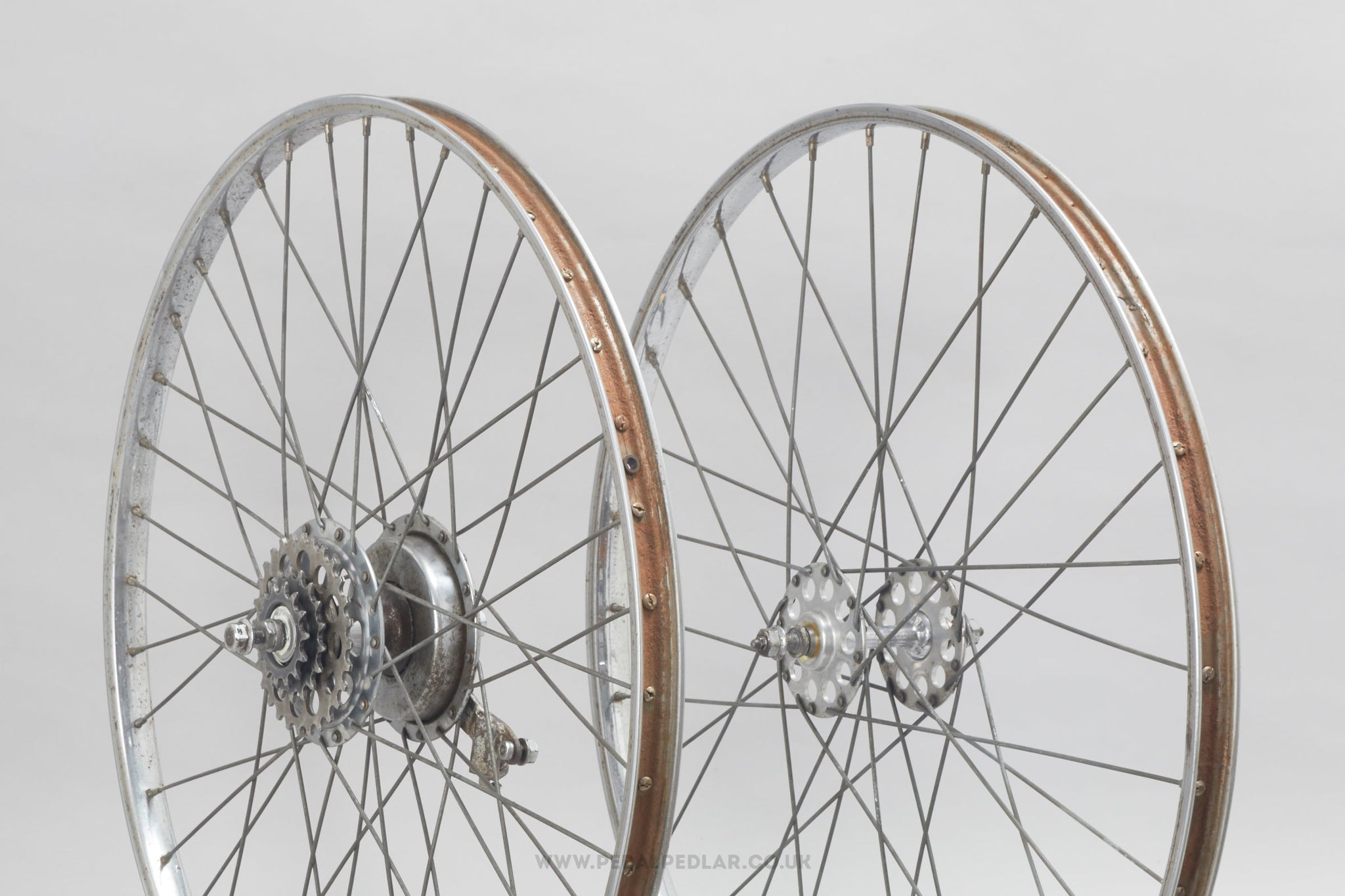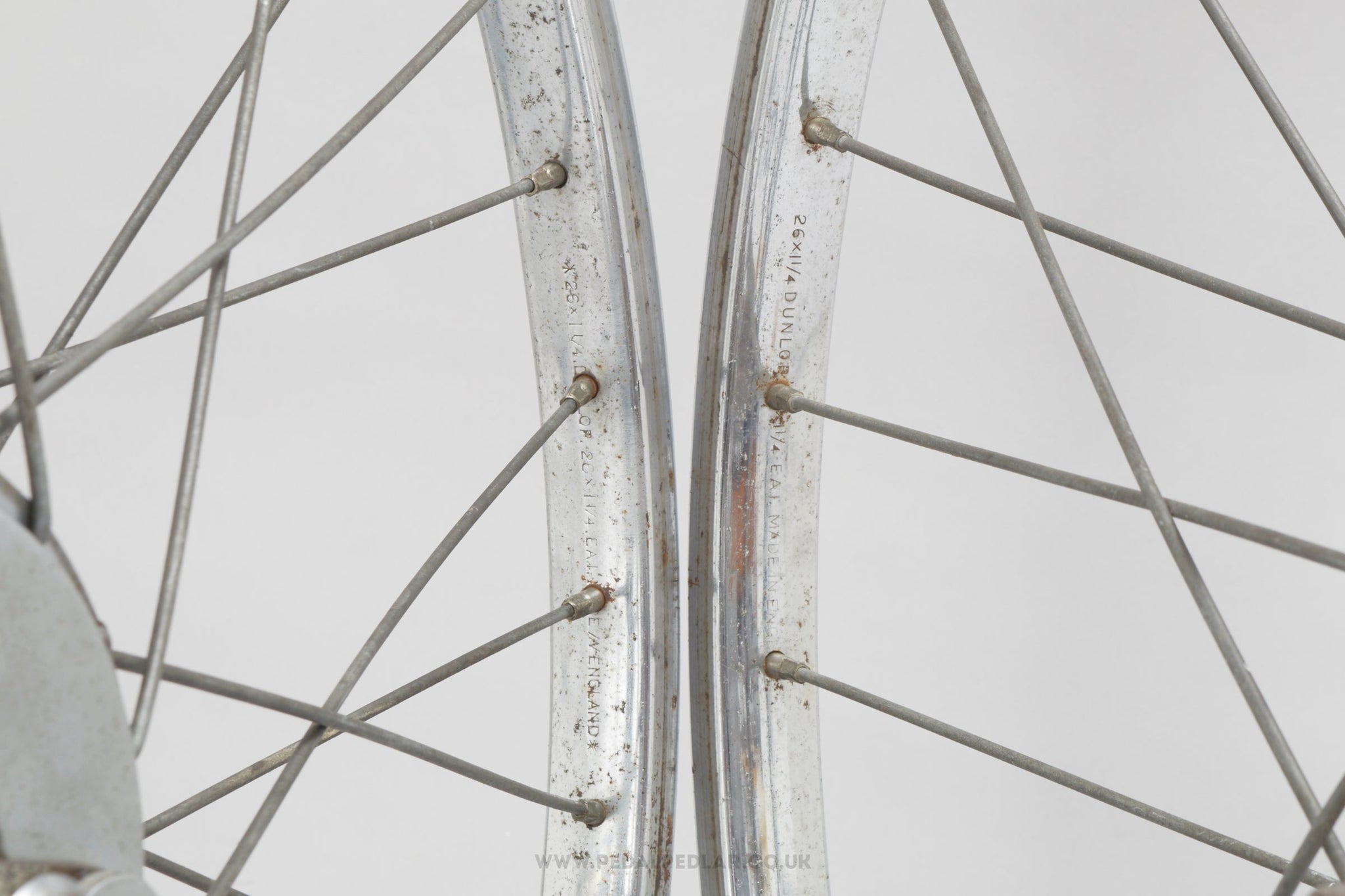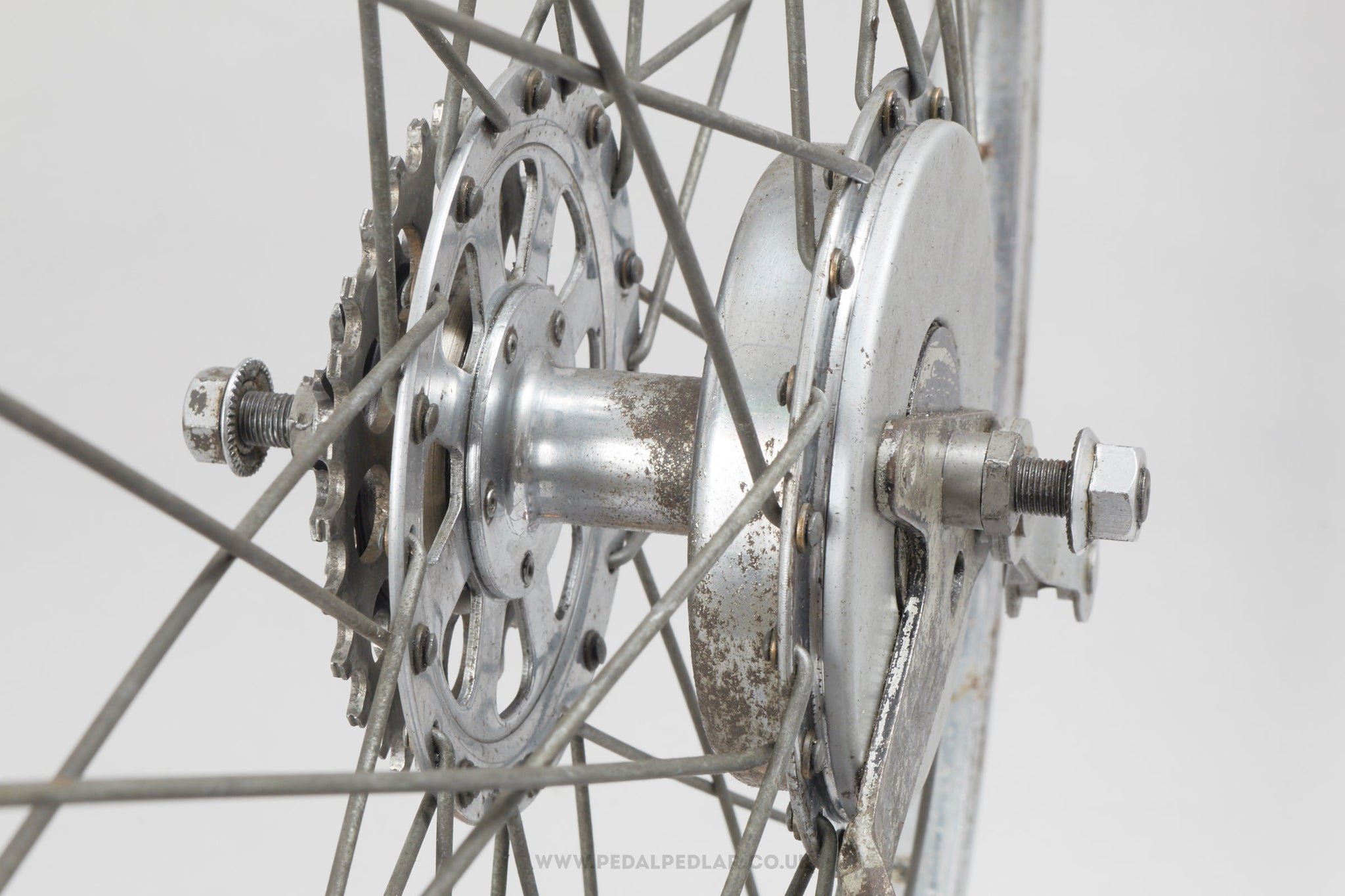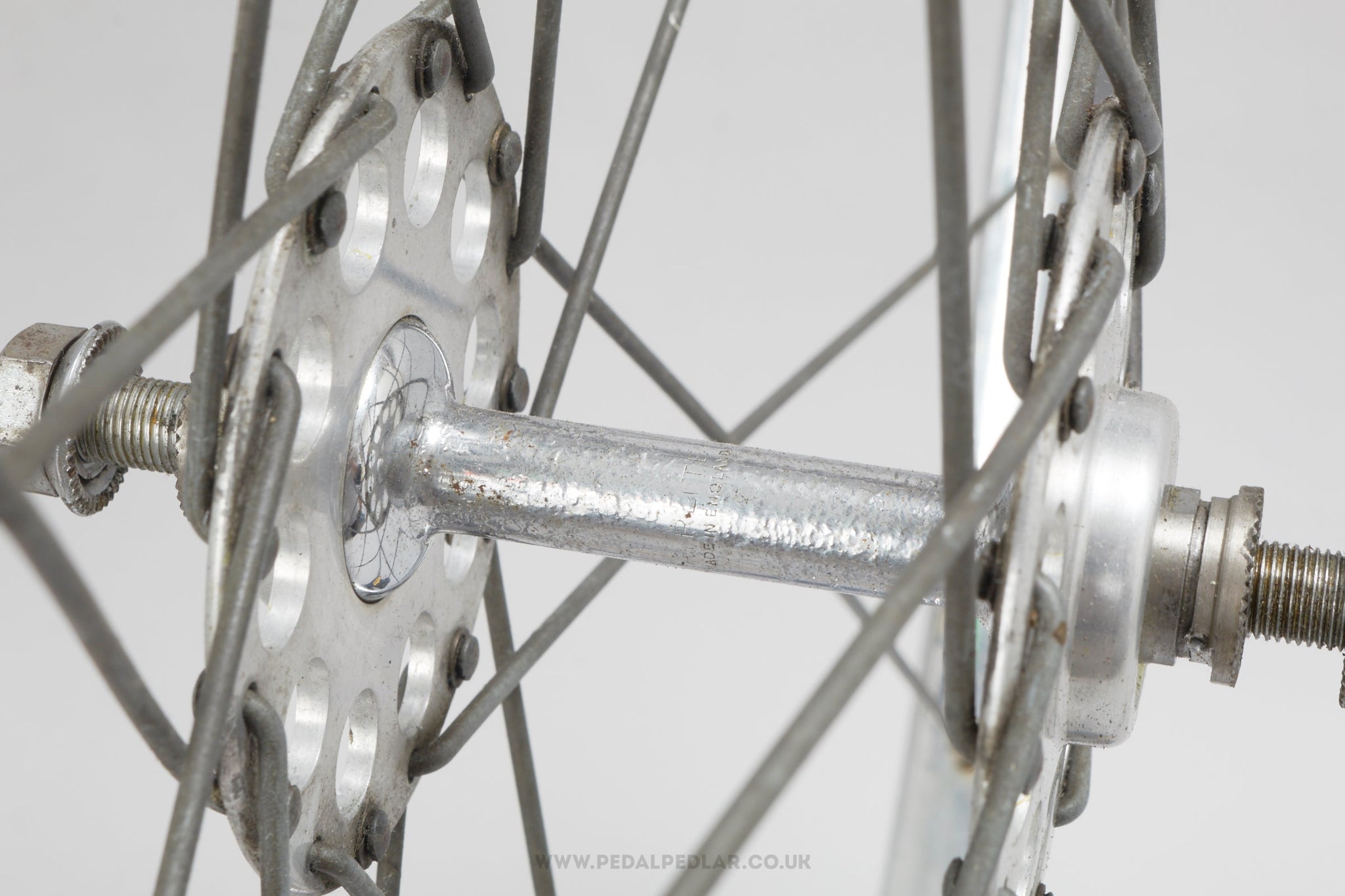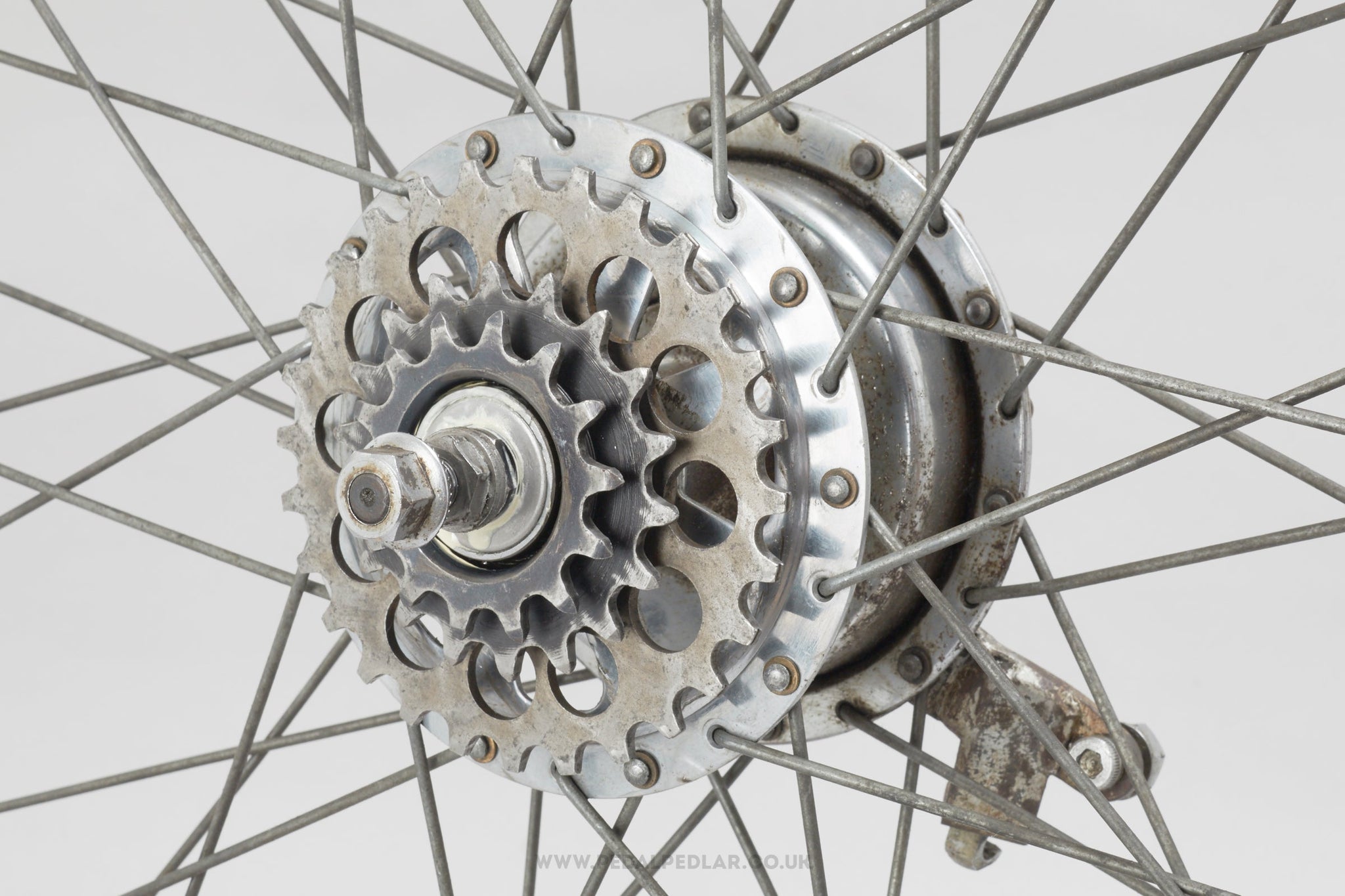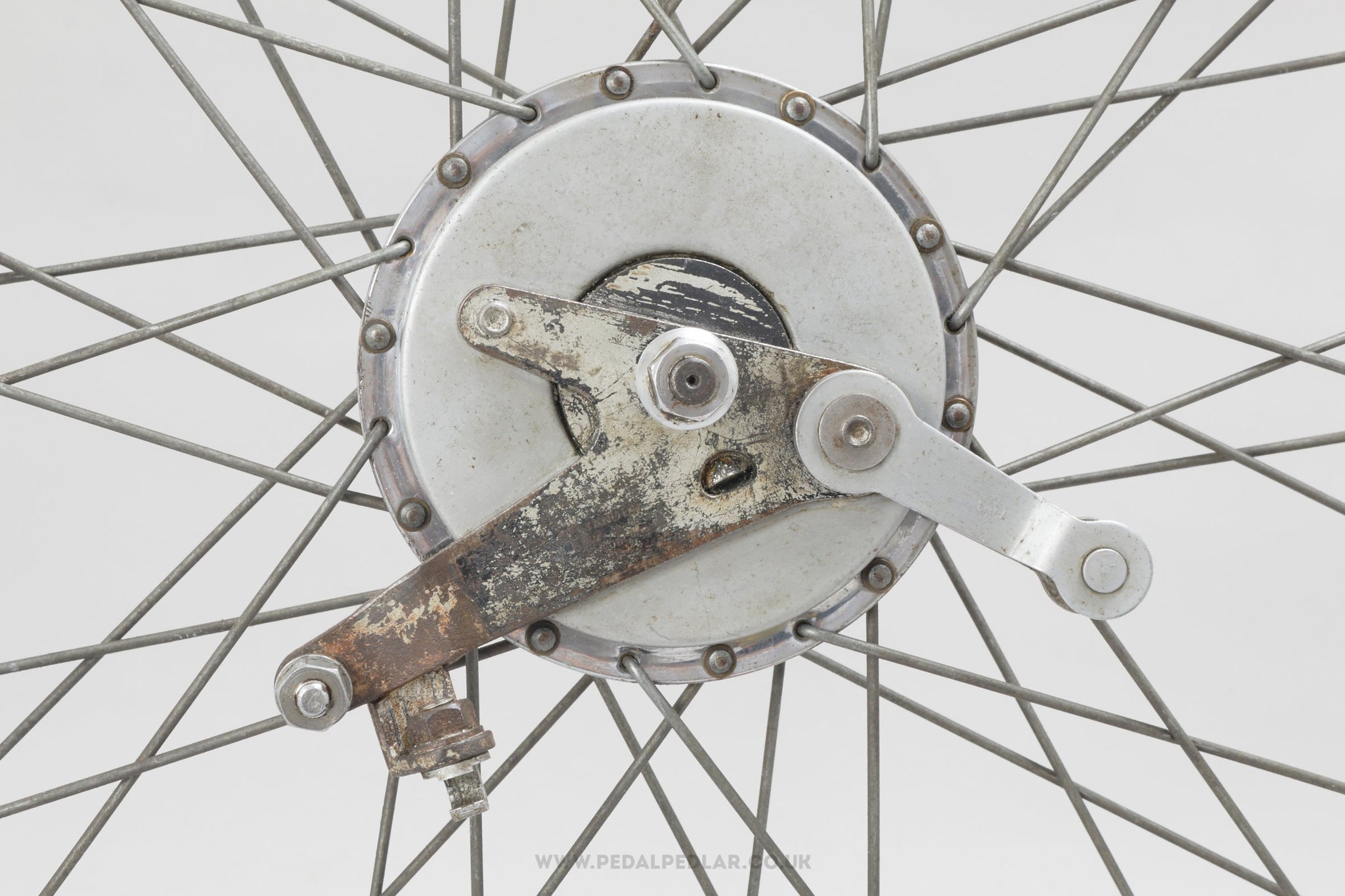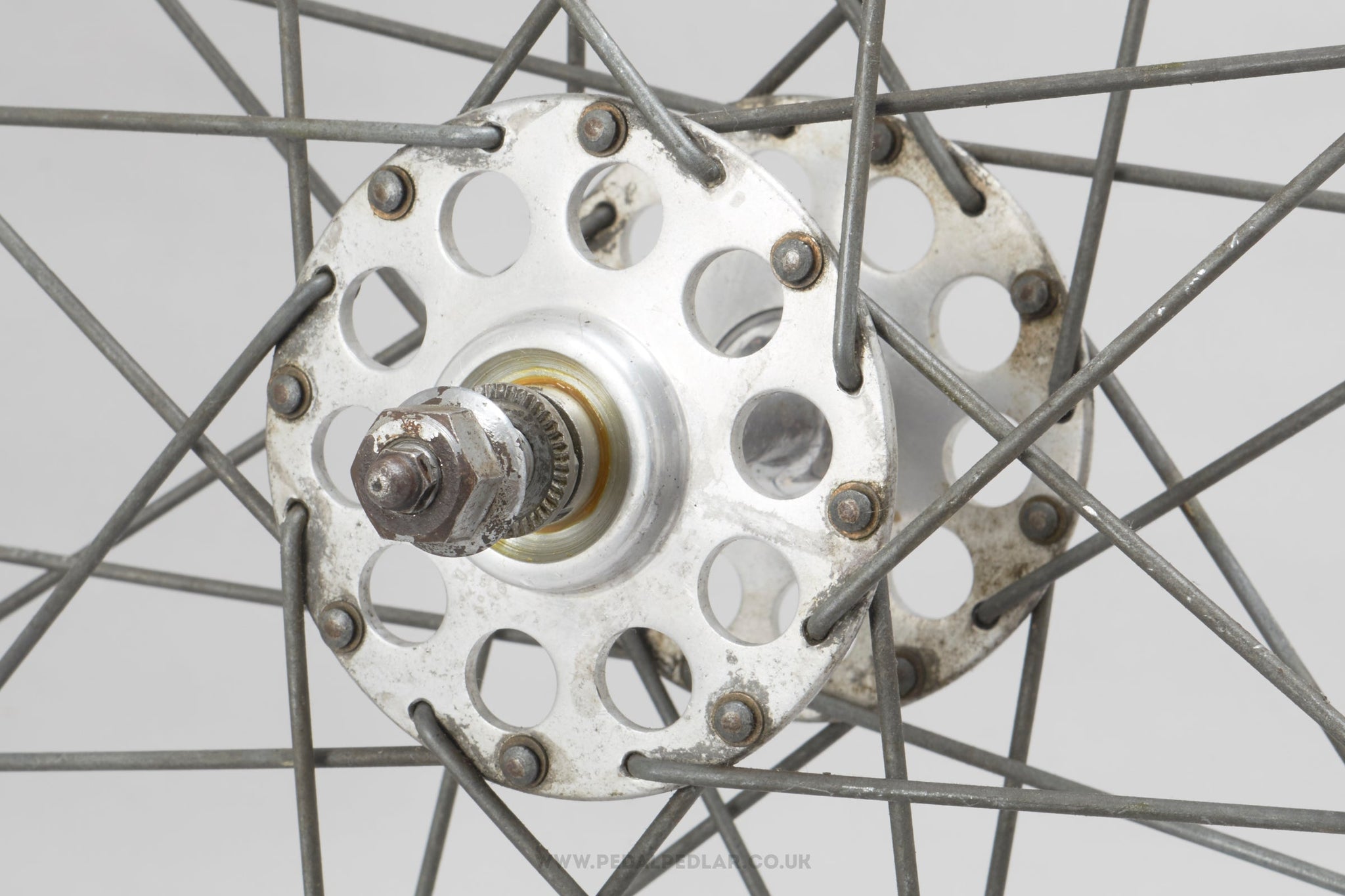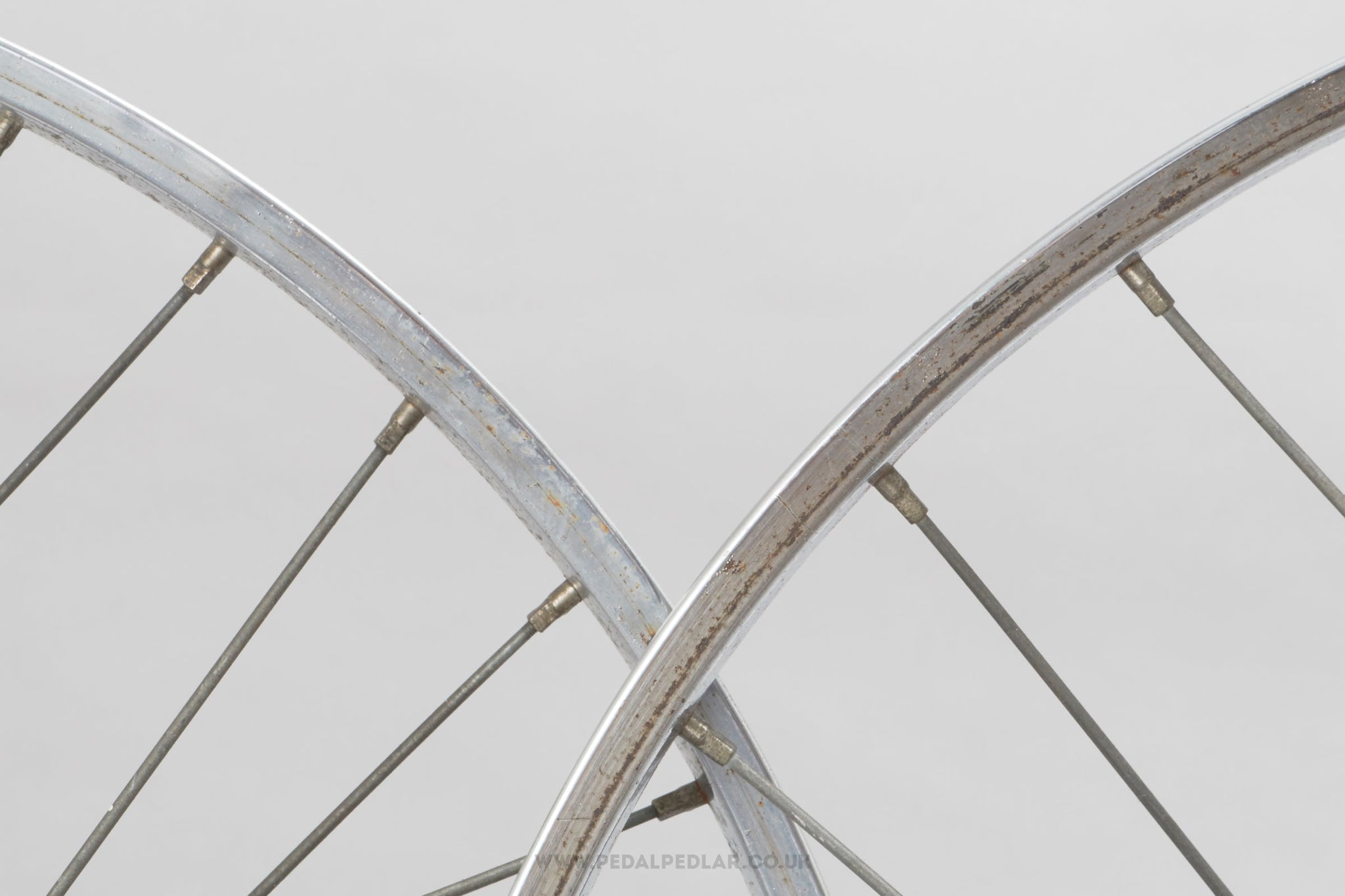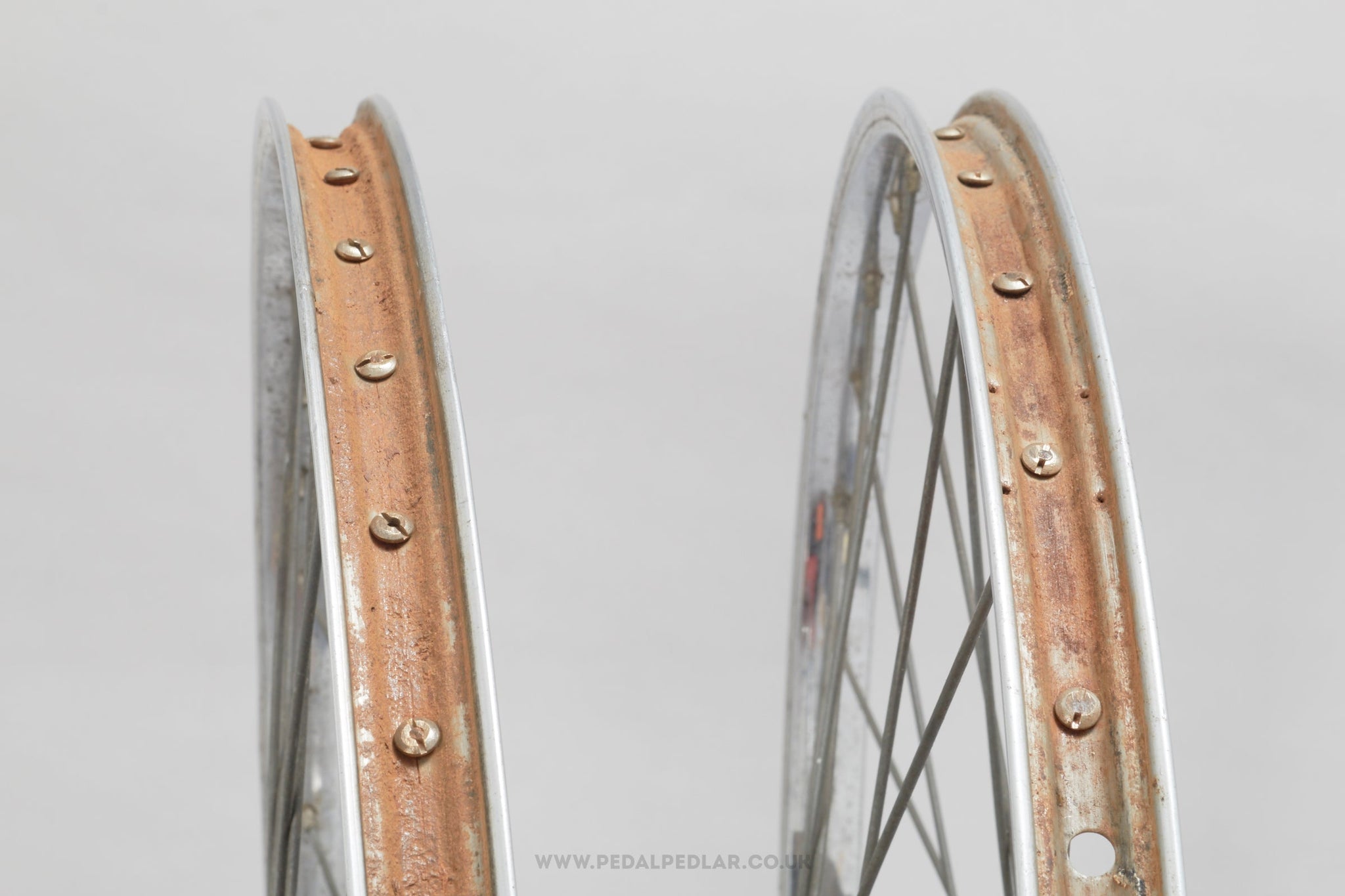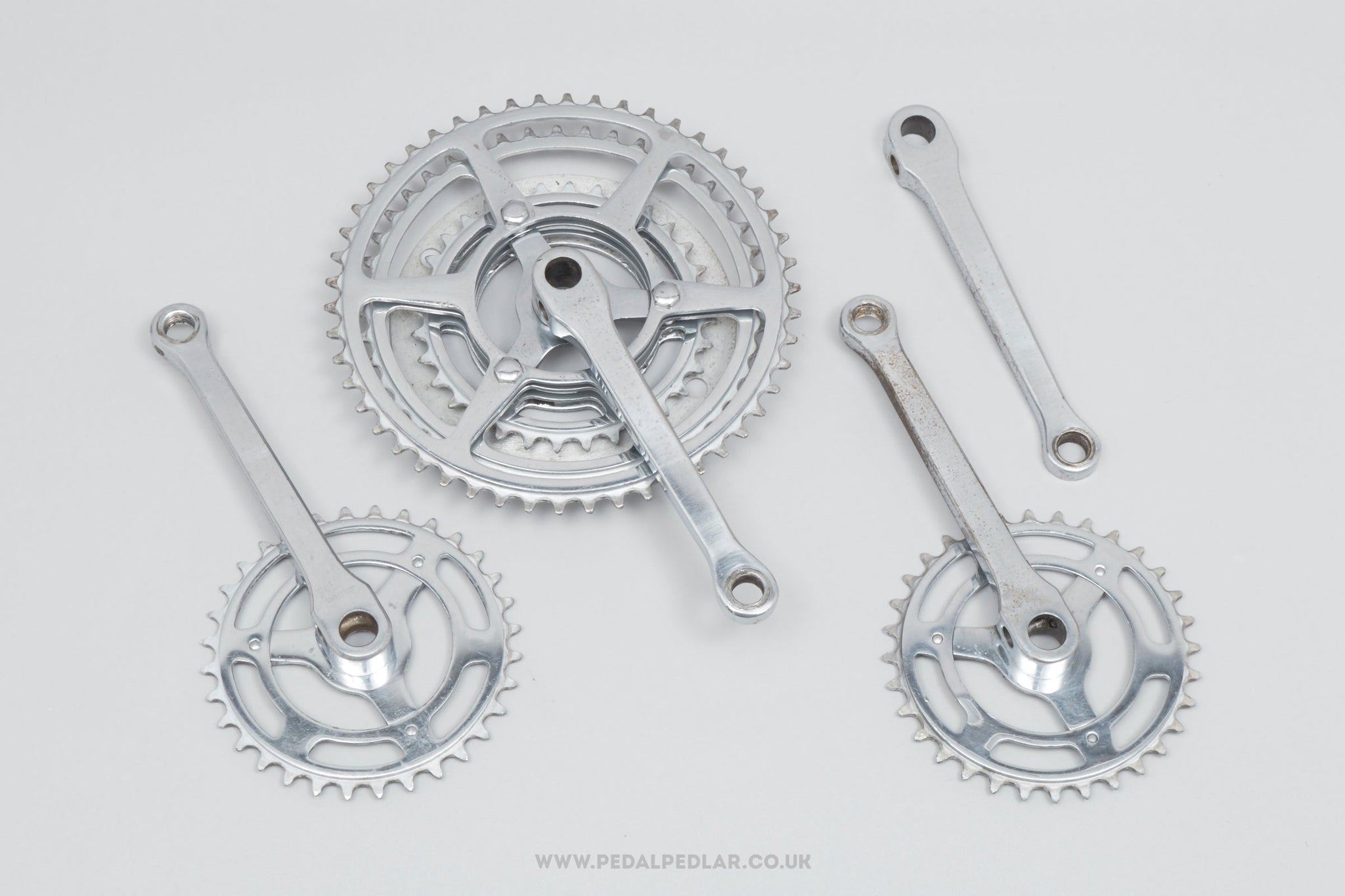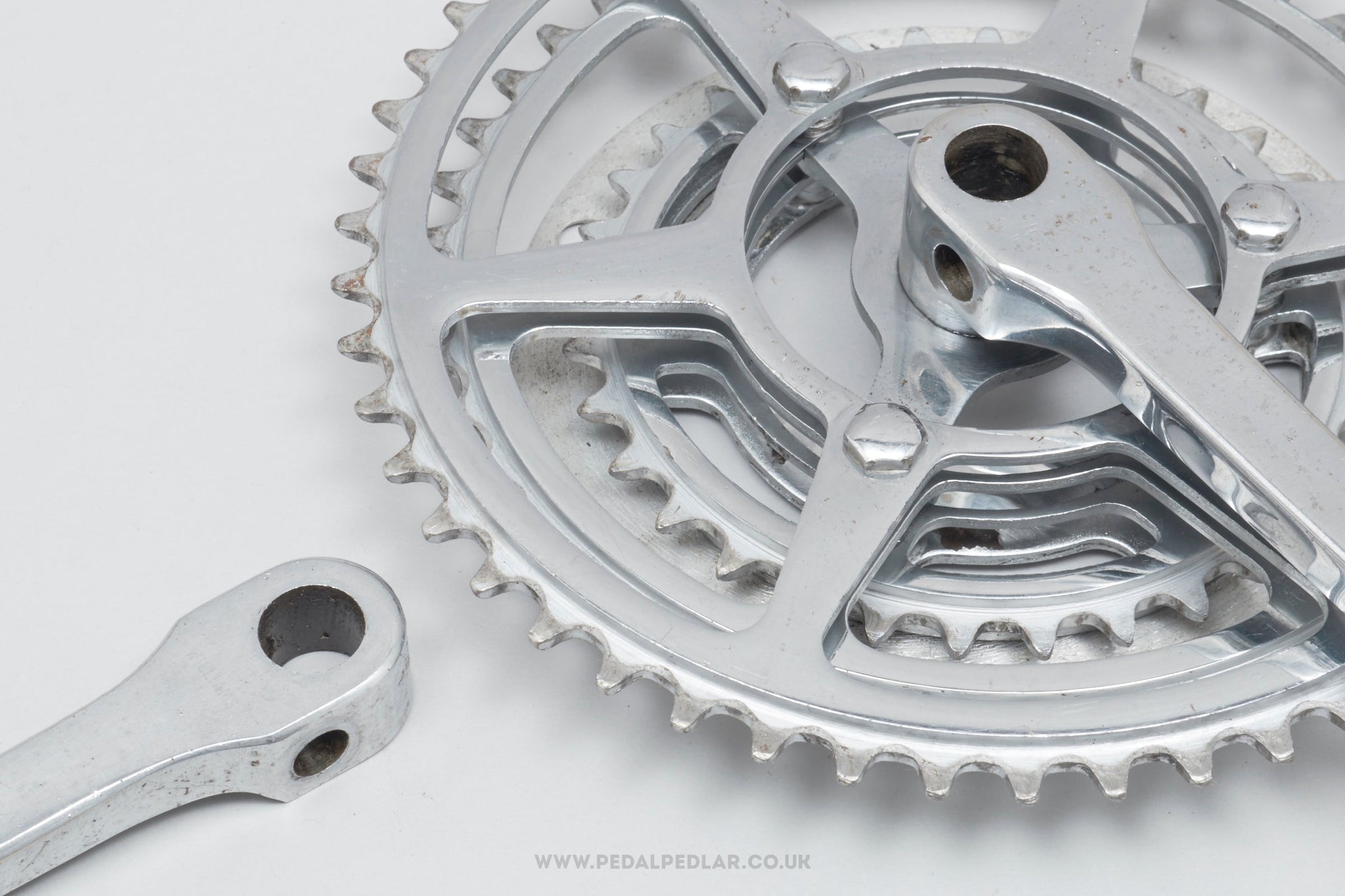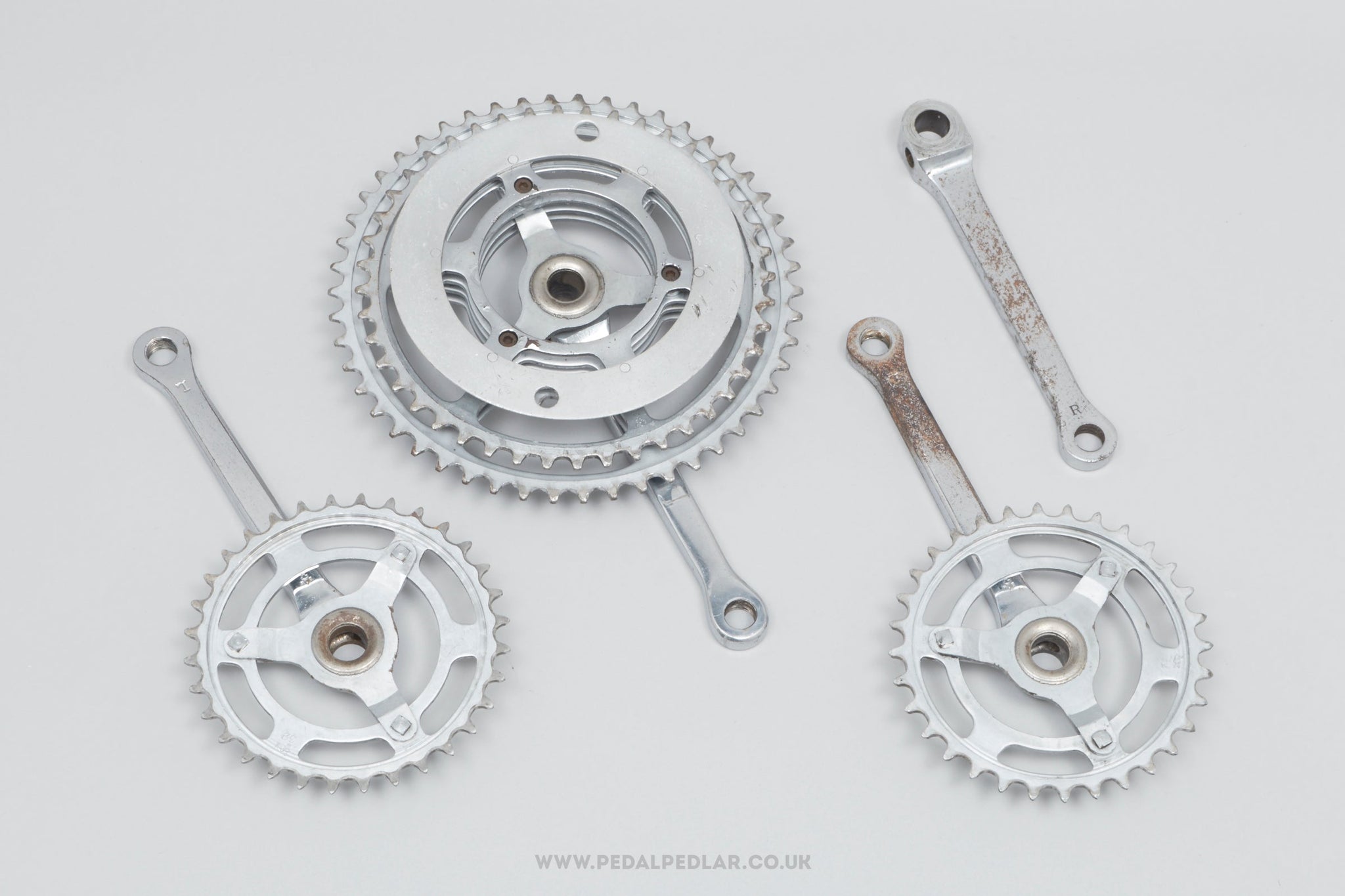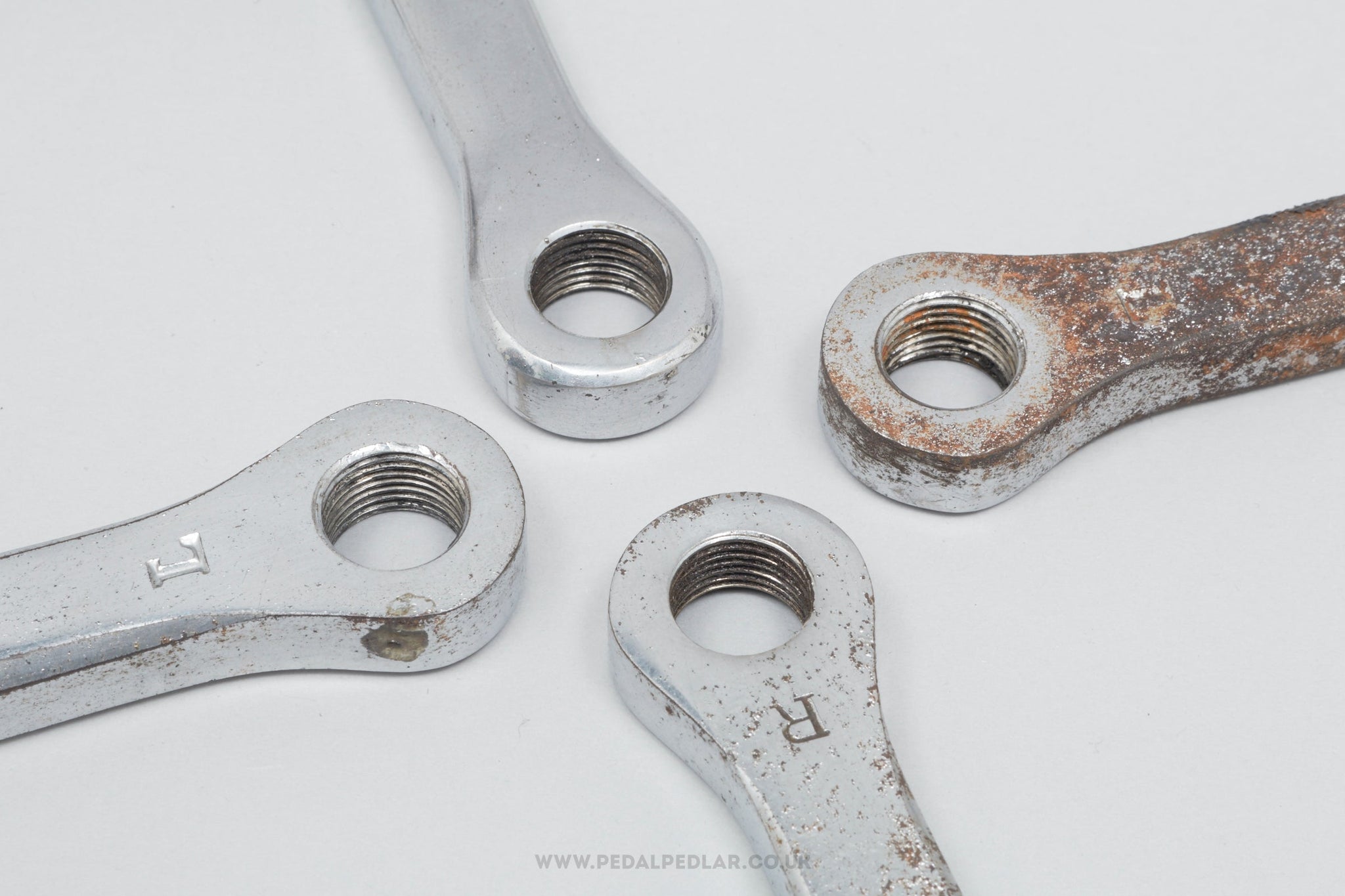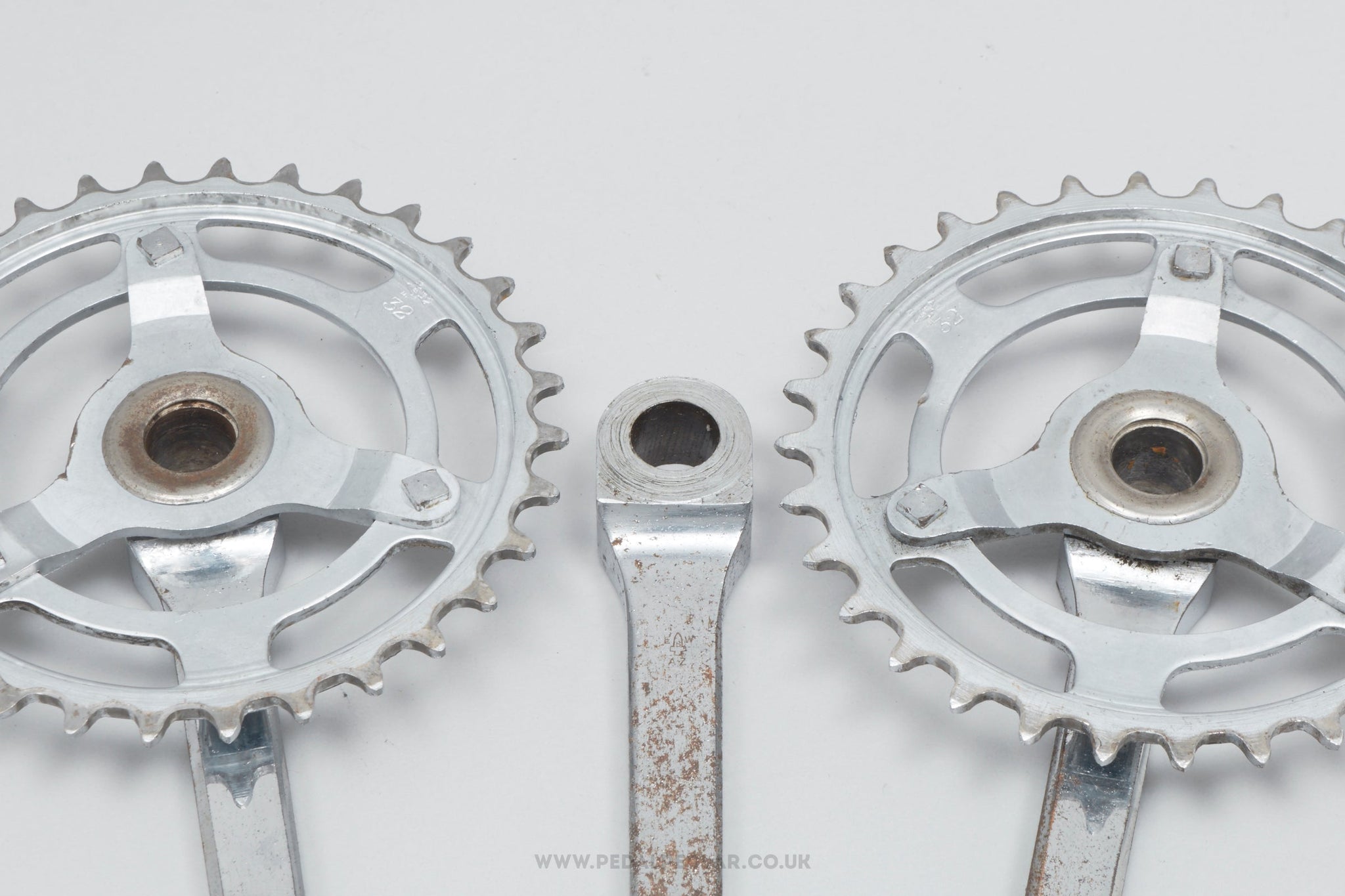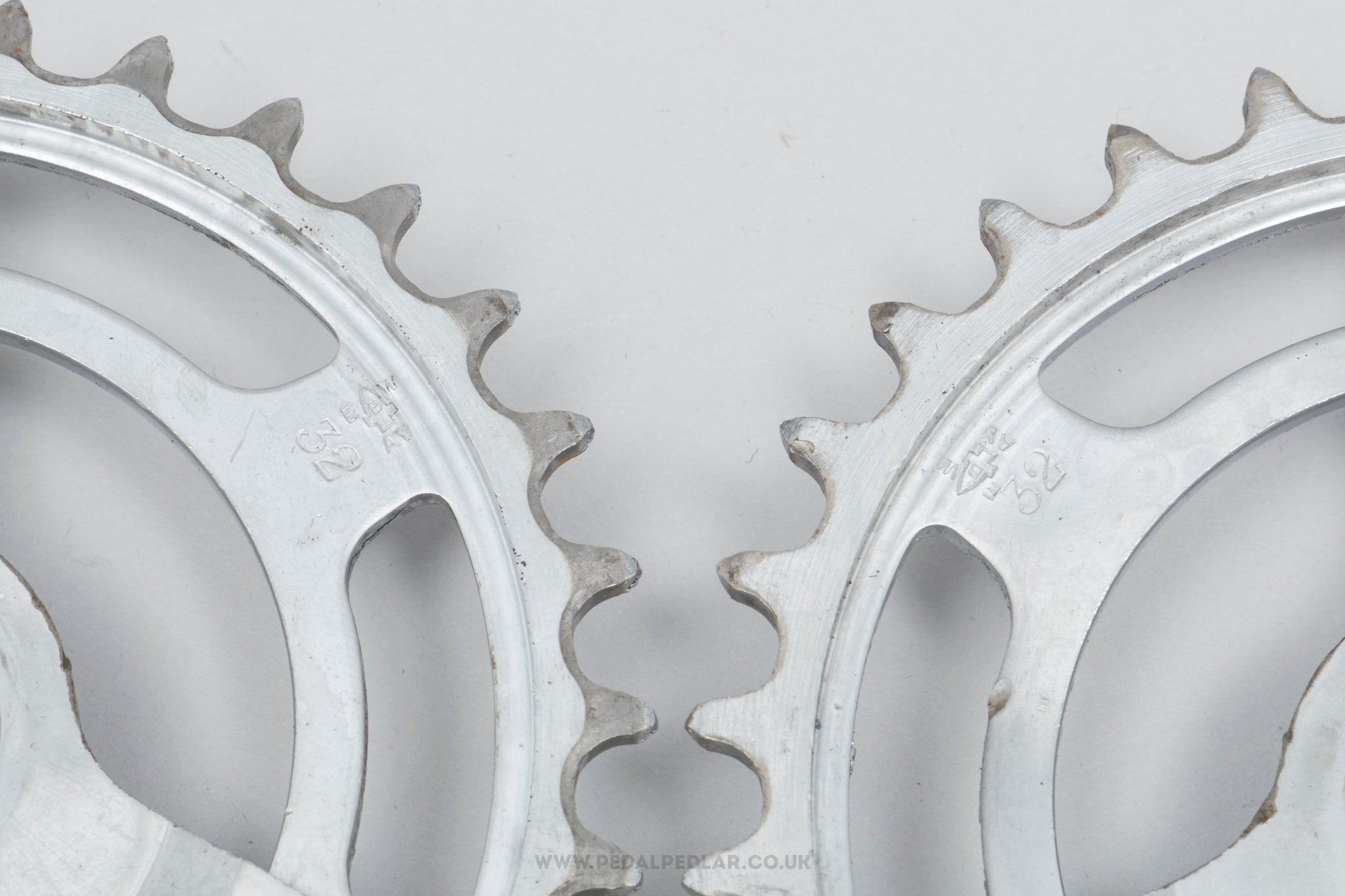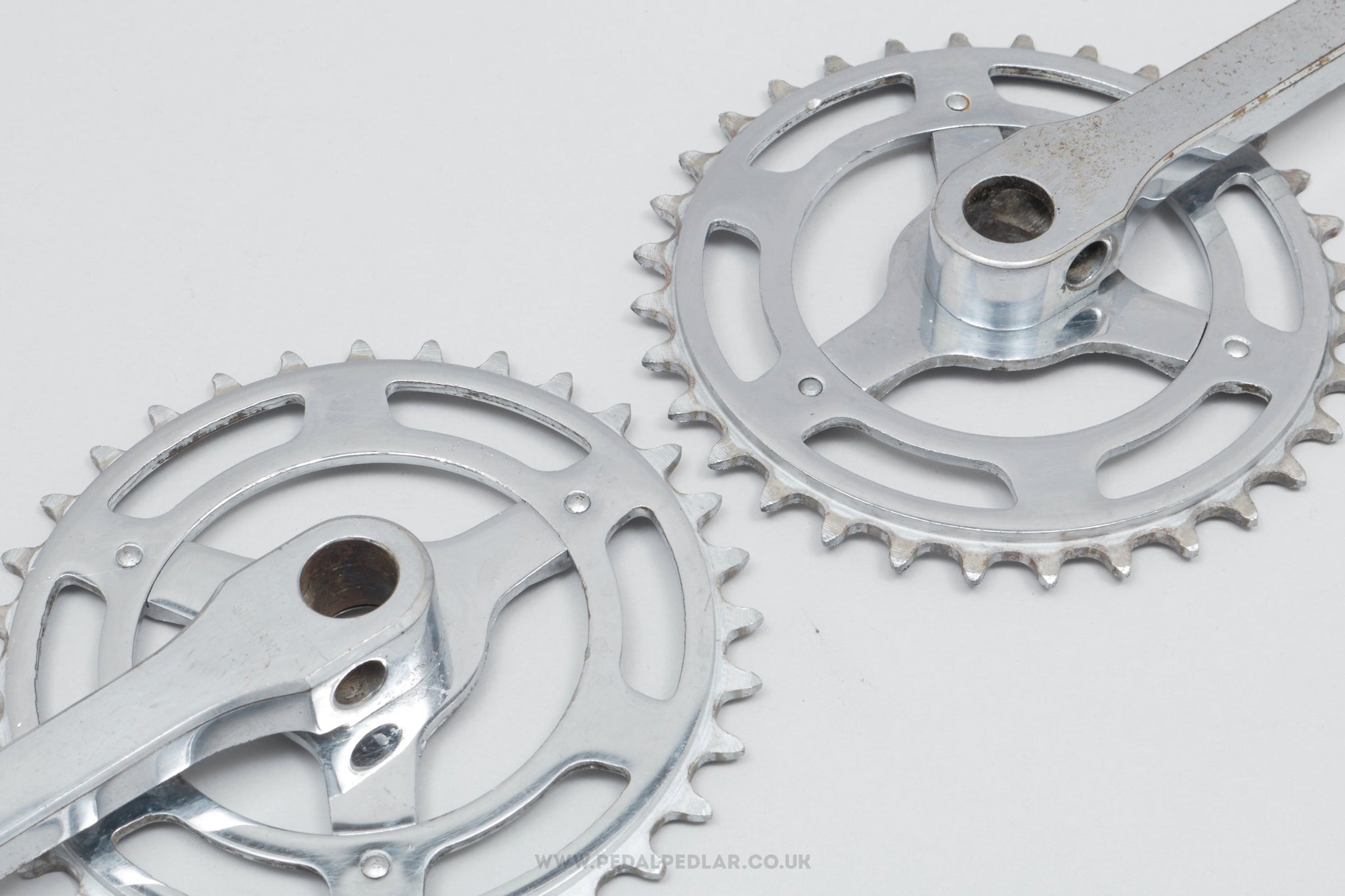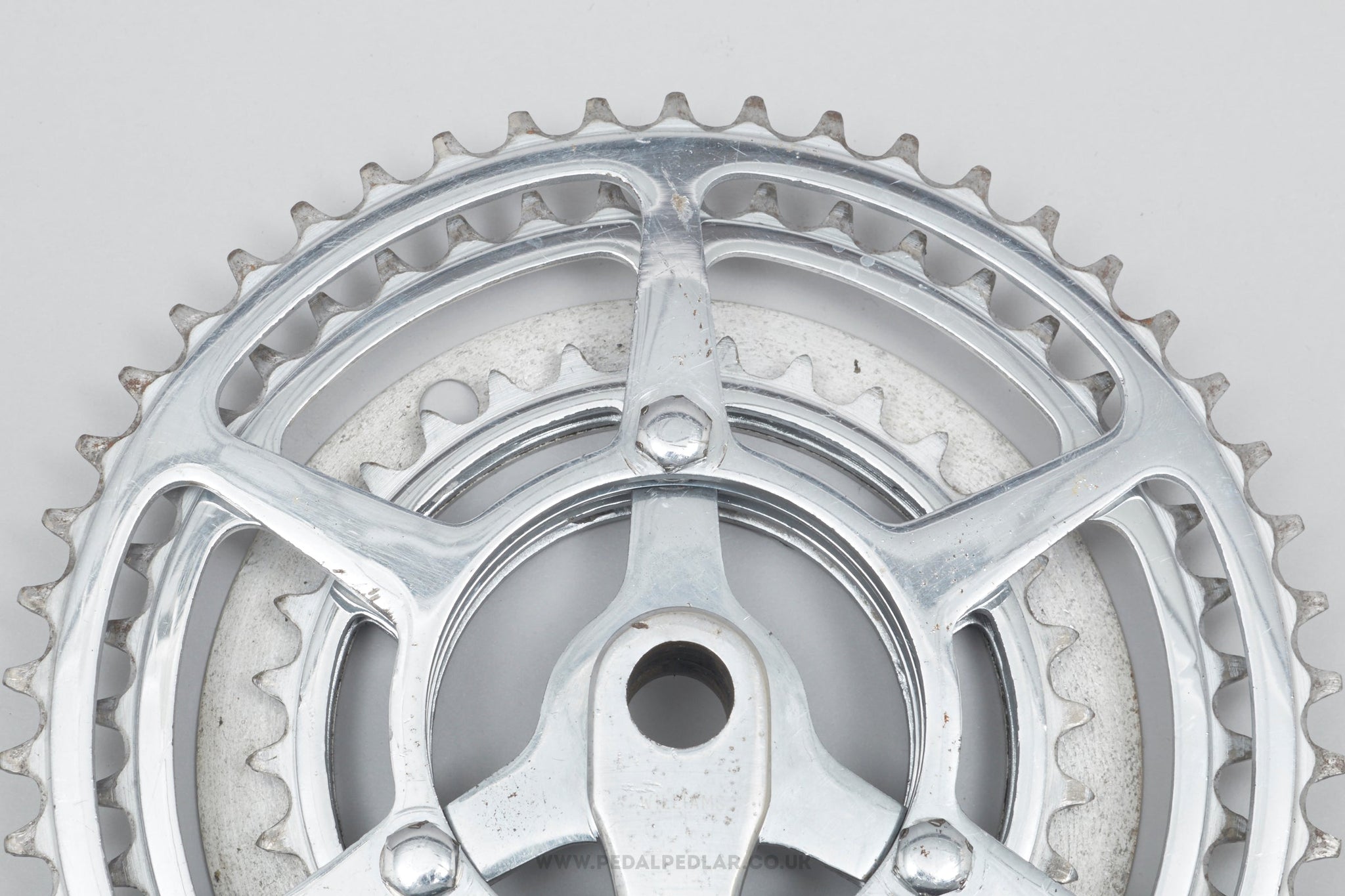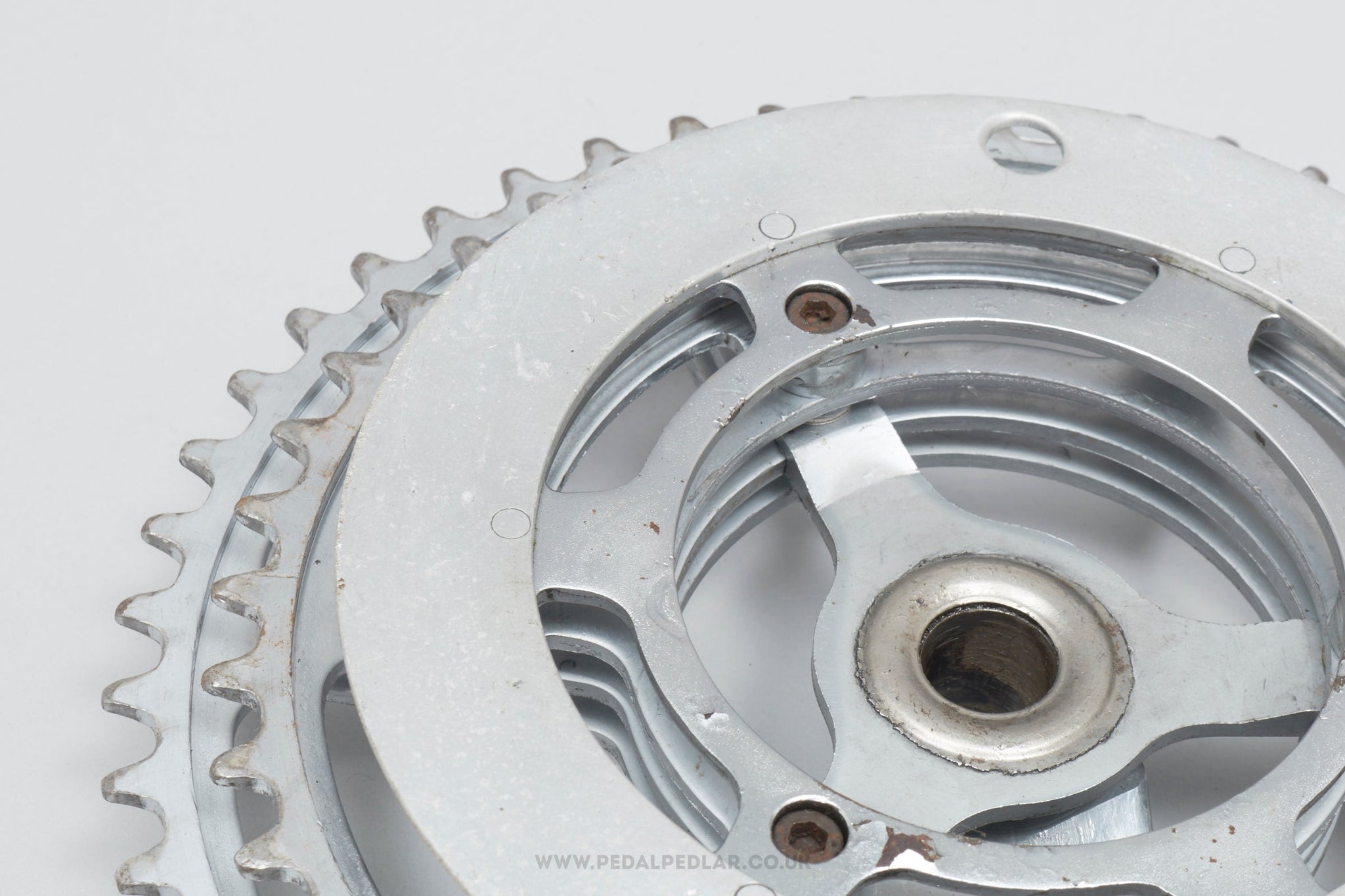- Frames
- Wheels
-
Parts
- Drivetrain & Gearing
- Downtube Shifters
- Bar Shifters
- Shift/Brake Levers
- Front Derailleurs
- Rear Derailleurs
- Chainsets
- Crank Arms
- Crank Parts
- Bottom Brackets
- Bottom Bracket Parts
- Chainrings
- Freewheels
- Cassettes
- Chains
- Gear Parts
- Braking
- Brake Sets
- Brake Calipers
- Brake Cantilevers
- Brake Levers
- Brake Parts
- Clothing
- Accessories
- Journal
Over £100
British Hubs (BH) Cyklbrake / Airlite Continental / Dunlop Vintage 26" Tandem Wheels
£325.00
✓ Original vintage wheels - in production from the 1940s to the 1950s
✓ Suitable for historic cycling events such as L'Eroica
✓ Professionally checked & serviced
✓ Worldwide shipping
British Hubs (BH) Cyklbrake / Airlite Continental wheels built with Dunlop rims, the hubs hailing from Great Britain and in production from the 1940s to the 1950s. Made from aluminium/steel and weighing in at 4.9 kg. A fine choice for keeping your vintage bike authentic, but also great for any other compatible bike too.
If you're taking part in L'Eroica or a similar vintage event, these are fully compliant - so rest assured, the pre-1987 police won't lock you up for having the wrong wheels!
The wheels have been fully serviced by one of our mechanics and graded as good condition, but do take a good look at the detailed photos so you can see the cosmetic condition before you buy.OVERVIEW
Rim Condition - Good
Hubs - British Hubs (BH) Cyklbrake Super-Tandem / Airlite Continental
Rims - Dunlop
Production Era - 1940s & 1950s
Material - Aluminium / Steel
Weight - 4.91 kg
Stock Code - U-W-PR55V
NB - Includes 1/8" 3 speed freewheel as pictured
TECHNICAL INFO
Rim Size - 26" (ISO 597mm) Clincher
Bike Type - Tandem
Drilling (F/R) - 32/40 Hole
Spacing (O.L.D.) (F/R) - 105 mm / 120 mm
Speed - 3 Speed
-
▼SHIPPING, TAXES & RETURNS
-
We've been safely sending orders around the world since 2010. There's a handy shipping calculator on the shopping cart page so you can see the cost of postage as soon as you've added it to your basket. Your order will be carefully packed and sent with tracking & insurance, we despatch most orders within 2-3 days but larger items and orders placed before the weekend can take an extra day or two to process.
We accept returns, please notify us within 14 days and ensure the item arrives back with us no later than 30 days after the order was received.
We don't charge VAT, however, if buying from outside of the UK please remember that there may be import fees to pay directly to the delivery company before receiving the order. Unfortunately we can’t advise on the exact costs as it varies from country to country, so please check your national rates before purchasing.
-
▼HELP SECTION
-
Rim Size - this should match the size your bike frame is designed to fit. Standard/full size tubulars only come in one wheel size, these are often referred to as 28" or 700c (sometimes even 27"). These are all the same size, the next size down is 26", so any rims larger than 26" will be standard/full size tubulars.
Bike Type - this is really just a guide, as technically any wheels can be used on any bike as long as everything's compatible. Within reason of course - we wouldn't recommend riding a set of skinny tubular road wheels down a mountain!
Drilling (F/R) - the number of spokes in each wheel (front/rear).
Spacing (O.L.D.) (F/R) - the width of the hubs measured at their widest point, from the outside of the locking end nuts (O.L.D. = Over Locknut Dimension), not including the hub axle. These measurements need to match the inside of your frame and fork’s dropouts. Steel frames can be stretched or squeezed a few mm but it's always best to avoid this if possible, aluminium or carbon frames should never be stretched.
Speed - the number of cogs the rear hub was designed to be used with.
Sprocket Fitting - for cassette hubs this refers to the spline pattern (the shape of the cogs where they slide on to the hub) and this must match the cassette you intend to use. With freewheel hubs it refers to the thread, ISO is the modern standard and is almost exactly the same as older English/British and Italian thread, allowing you to mix and match between these thread types as long as it's not going to be under extreme force, in which case it's best to stick to an exact match. Freewheel hubs with a French thread must be used with a French threaded freewheel.
Williams D34 c.1958/59 Vintage Triple Cottered 165 mm Tandem Chainset
£225.00
✓ Original part - in production from the 1930s to the 1960s
✓ Suitable for historic cycling events such as L'Eroica
✓ Professionally checked & cleaned
✓ Worldwide shipping
Williams D34 chainset (or crankset, if you prefer), hailing from Great Britain and dating back to 1958/59. Made from steel and weighing in at 2505 grams. A fine choice for keeping your vintage bike authentic, but also great for any other compatible bike too.
If you're taking part in L'Eroica or a similar vintage event, this is fully compliant - so rest assured, the pre-1987 police won't lock you up for having the wrong chainset!
The chainset's been carefully cleaned, thoroughly checked by one of our mechanics and graded as good condition, but do take a good look at the detailed photos so you can see the cosmetic condition before you buy.OVERVIEW
Chainring Condition - Good
Condition Notes - One of the left chainrings is quite worn, and there's chrome loss and rust present, mostly on the rear of some arms but the full set is in good condition. Please check the photos for clarity.
Production Era - 1930s - 1960s
Country - British
Material - Steel
Weight - 2505 g
Stock Code - U-CS76V
NB - Left hand tooth count is 32
TECHNICAL INFO
Chainring Count - Triple
Tooth Count - 32 / 44 / 50
Bottom Bracket Type - Cottered
BCD - 88.9 BCD
Crank Arm Length - 165 mm
Chain Width - 1/8"
Pedal Threads - Standard (9/16" x 20 TPI)
Intended Speed* - 3 Speed, 4 Speed
Bike Type* - Tandem
*See help section.
-
▼SHIPPING, TAXES & RETURNS
-
We've been safely sending orders around the world since 2010. There's a handy shipping calculator on the shopping cart page so you can see the cost of postage as soon as you've added it to your basket. Your order will be carefully packed and sent with tracking & insurance, we despatch most orders within 2-3 days but larger items and orders placed before the weekend can take an extra day or two to process.
We accept returns, please notify us within 14 days and ensure the item arrives back with us no later than 30 days after the order was received.
We don't charge VAT, however, if buying from outside of the UK please remember that there may be import fees to pay directly to the delivery company before receiving the order. Unfortunately we can’t advise on the exact costs as it varies from country to country, so please check your national rates before purchasing.
-
▼HELP SECTION
-
Chainring Count - the number of chainrings on the chainset. Fixed gear track bikes, single-speeds and some geared bikes use a single chainring, road bikes commonly use a double (two rings) and most touring bikes and mountain bikes will use a triple chainset (three rings).
Tooth Count - the number of teeth on the chainring(s), the higher the number the harder the gear.
Bottom Bracket Type - ‘square taper’, as the name suggests have a square shaped axle that slots into the chainset and ‘cottered’ axles are round and secured by pins - pretty much every bike up until the 1990s would use one of these, cottered being the much earlier system. Since then, different manufacturers have introduced their own systems that are not interchangeable so you must use a chainset that matches.
BCD - stands for Bolt Circle Diameter (sometimes referred to as PCD - Pitch Circle Diameter) and is only really needed when changing chainrings. To calculate the BCD, measure the distance in millimeters from the centre of any chainring bolt to the centre of an adjacent one and multiply it by 1.709 (you’ll likely need to round the resulting number up or down a little to get your BCD measurement).
Crank Arm Length - this is measured from the absolute centre of the bottom bracket hole to the centre of the hole for the pedal.
Chain Width - this is mostly only relevant for chainsets with a single chainring - if this is ⅛” then you must use a ⅛” chain. Almost all double and triple (and some single) ring chainsets will use a standard 3/32” chain, the only exception being old chainsets designed for 3 or 4 speed freewheels.
Pedal Threads - this must match the thread of your pedals and is usually stamped on the pedals themselves, most bikes use a standard thread of 9/16” x 20 tpi. The exceptions being older French bikes, bikes with cheaper one-piece type chainsets and Shimano’s Dyna Drive system (easily identifiable as the pedal holes are about an inch wide!).
*Intended Speed - the number of cogs at the back the chainset was designed to be used with. We refer to it as ‘intended’ speed as most double and triple chainsets will actually work with different speeds than originally intended, but the further away you get from the intended speed the more likely you are to experience minor setup issues. The exception being some chainsets intended for 10 speed use or higher, with these it’s better to stick to the intended speed.
*Bike Type - this is just a guide, any chainset can technically be used on any bike as long as everything's compatible.
SUBSCRIBE TO GET THE FIRST SCOOP
Exclusive content, new products, subscriber only promotions. Delivered to your inbox by tiny cyclists, every few weeks.
Don't worry, you can unsubscribe at any time.
PEDAL PEDLAR
T: 02036758003 // E: info@pedalpedlar.co.uk
© 2025 Pedal Pedlar.
Ecommerce Software by Shopify


